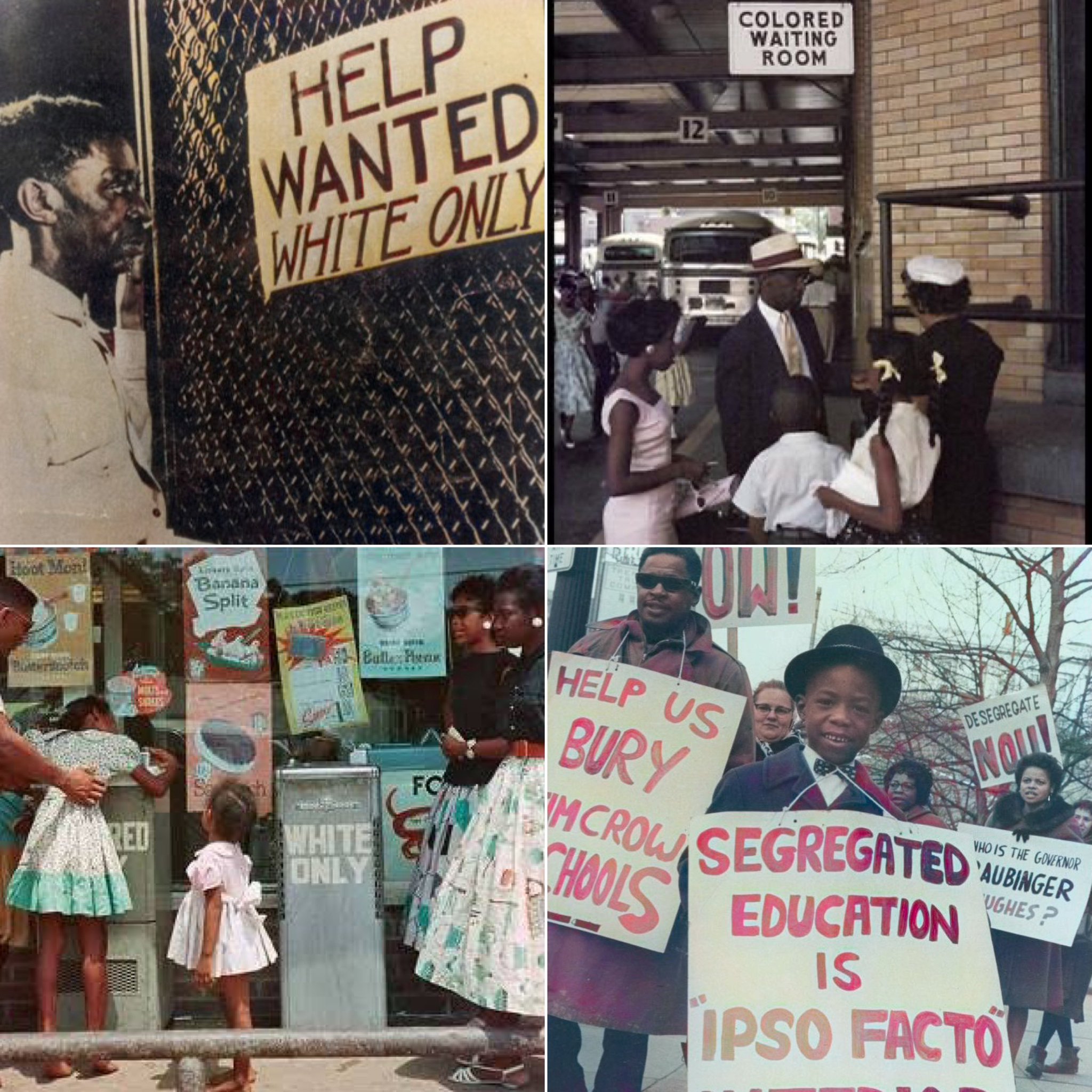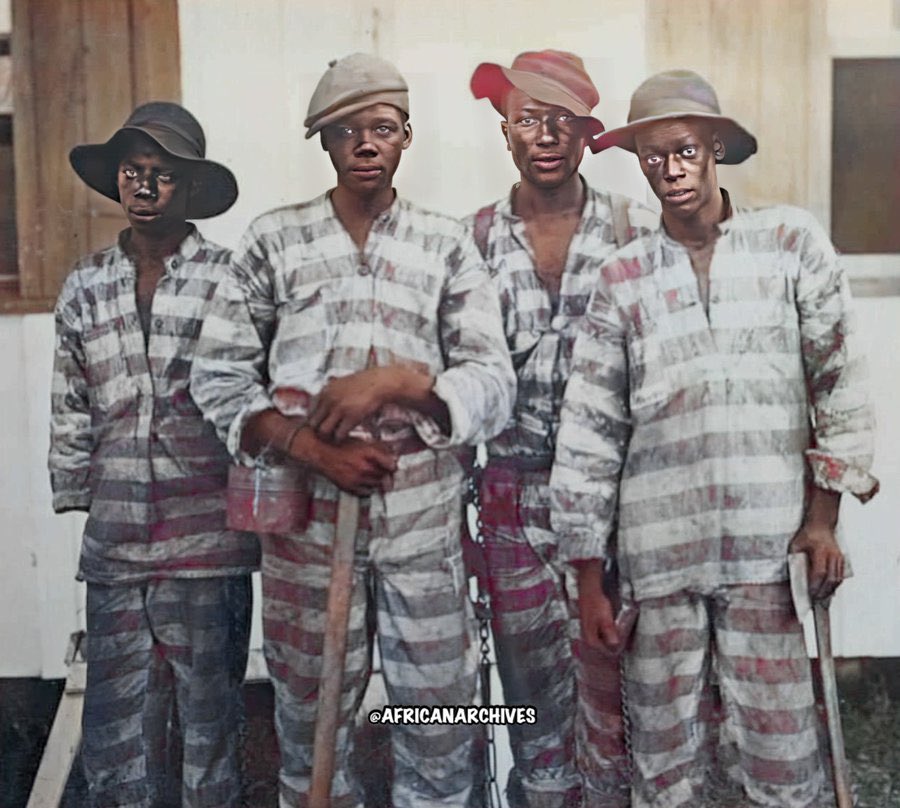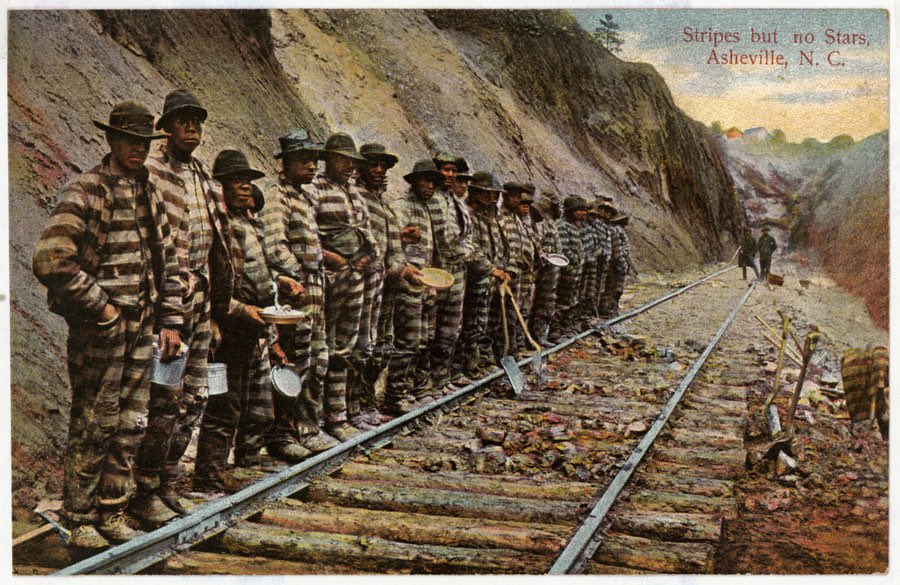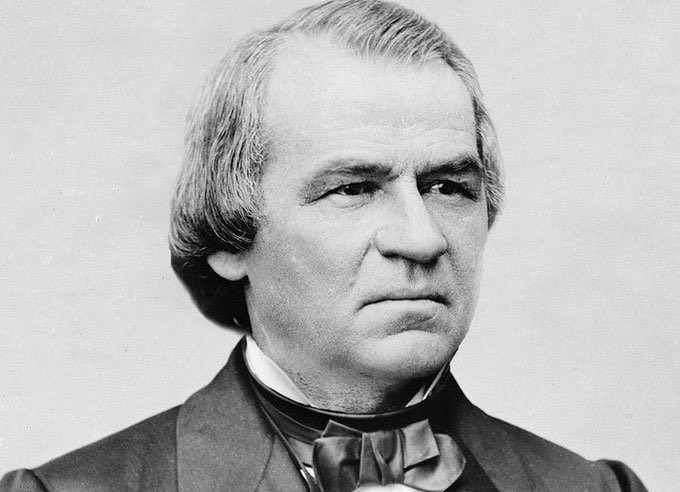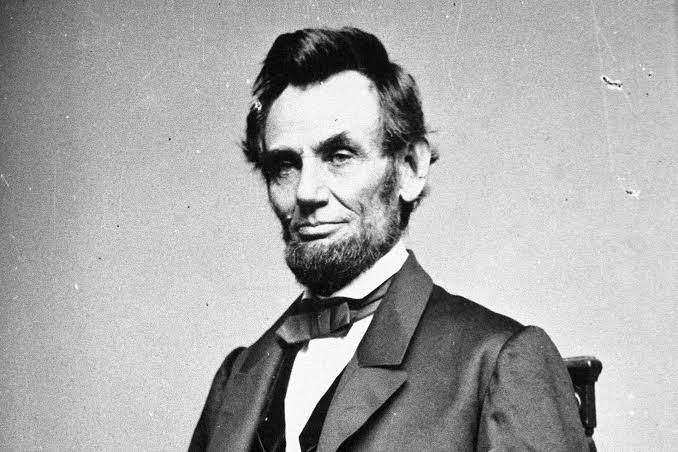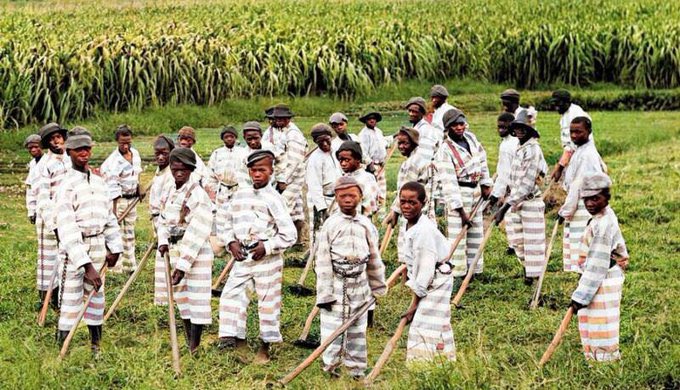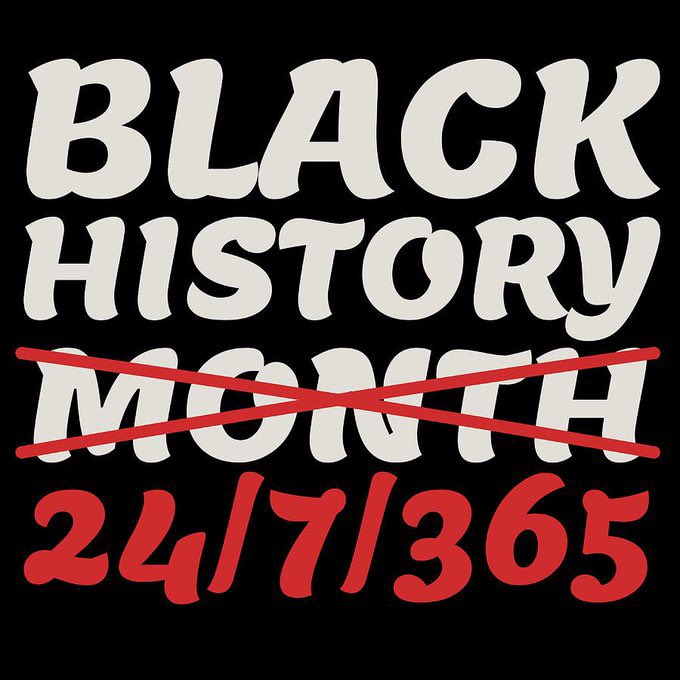Thread by AFRICAN & BLACK HISTORY
Thread
On this day in 1896, the U.S Supreme Court delivered its decision in Plessy v. Ferguson, establishing the “separate but equal” doctrine and authorizing discrimination by states.
This marked the formal beginning of Jim Crow Laws.
THREAD
This marked the formal beginning of Jim Crow Laws.
THREAD
In 1866, a year after the amendment that ‘abolished slavery’ was ratified, Alabama, Texas, Louisiana, Arkansas, Georgia, Mississippi, Florida, Tennessee, and South Carolina began to lease out convicts for labor.
This made the business of arresting black people very lucrative, thus hundreds of white men were hired by these states as police officers.
Their primary responsibility being to search out and arrest black peoples who were in violation of ‘Black Codes’
Their primary responsibility being to search out and arrest black peoples who were in violation of ‘Black Codes’
What were the Black Codes and how did they come to be?
Black codes were laws designed to limit the freedom of black people and ensure they were available as cheap labor after slavery was abolished.
Black codes were laws designed to limit the freedom of black people and ensure they were available as cheap labor after slavery was abolished.
Basically, black codes were a series of laws criminalizing legal activity for black people. Through the enforcement of these laws, they could be imprisoned.
Once arrested, these men, women & children would be leased to plantations or they would be leased to work at coal mines, or railroad companies. The owners of these businesses would pay the state for every prisoner who worked for them; prison labor.
Under the codes, states required black people to sign yearly labor contracts and if they refused, they risked being arrested, fined or forced into unpaid labor.
President Andrew Johnson, Lincoln's predecessor, favored the South during Reconstruction, allowing Black Codes to exist and the first KKK. Also, the first president impeached.
⬇️Here’s how it happened⬇️
When President Lincoln announced the upcoming passage of the Emancipation Proclamation in 1863, the stakes of the Civil War shifted dramatically
When President Lincoln announced the upcoming passage of the Emancipation Proclamation in 1863, the stakes of the Civil War shifted dramatically
A Union victory would imply no less than revolution in the South, where the institution of slavery had dominated economic, political & social life in the antebellum years.
—antebellum period: period between end of the war of 1812 & start of the civil war of 1862—
—antebellum period: period between end of the war of 1812 & start of the civil war of 1862—
In April 1865, as the civil war drew to a close, Lincoln shocked many by proposing limited suffrage for black people in the South.
He was assassinated days later, however & his successor Andrew Johnson would be the one to preside over the beginning of Reconstruction.
He was assassinated days later, however & his successor Andrew Johnson would be the one to preside over the beginning of Reconstruction.
In the years following Reconstruction, the South reestablished many of the provisions of the black codes in the form of the so-called "Jim Crow laws."
These remained in place for almost a century, but were finally abolished with the passage of the Civil Rights Act of 1964.
These remained in place for almost a century, but were finally abolished with the passage of the Civil Rights Act of 1964.
It’s believed that after the passing of the 13th Amendment, more than 800,000 Black people were part of that system of re-enslavement through the prison system.
The 13th Amendment declared that "Neither slavery nor involuntary servitude, except as a punishment for crime whereof the party shall have been duly convicted, shall exist within the United States, or any place subject to their jurisdiction." (Ratified in 1865)
It says, “neither slavery nor involuntary servitude could occur except as a punishment for a crime".
Lawmakers used this phrase to make petty offenses crimes. When Blacks were found guilty of committing these crimes, they were imprisoned and then leased out to the same… twitter.com/i/web/status/1659213184123961347
Lawmakers used this phrase to make petty offenses crimes. When Blacks were found guilty of committing these crimes, they were imprisoned and then leased out to the same… twitter.com/i/web/status/1659213184123961347
The majority of White Southern farmers and business owners hated the 13th Amendment because it took away slave labor. As a way to appease them, the federal government turned a blind eye when southern states used this clause in the 13th Amendment to establish the Black Codes.
In South Carolina, if the parent of a Black child was considered vagrant, the judicial system allowed the police and/or other government agencies to “apprentice” the child to an "employer". ⁉️
If you love my content, You can support my history page/project here through donations/tips to keep up on: ko-fi.com/africanarchives
